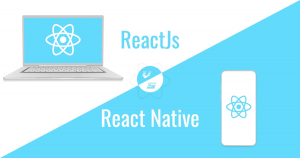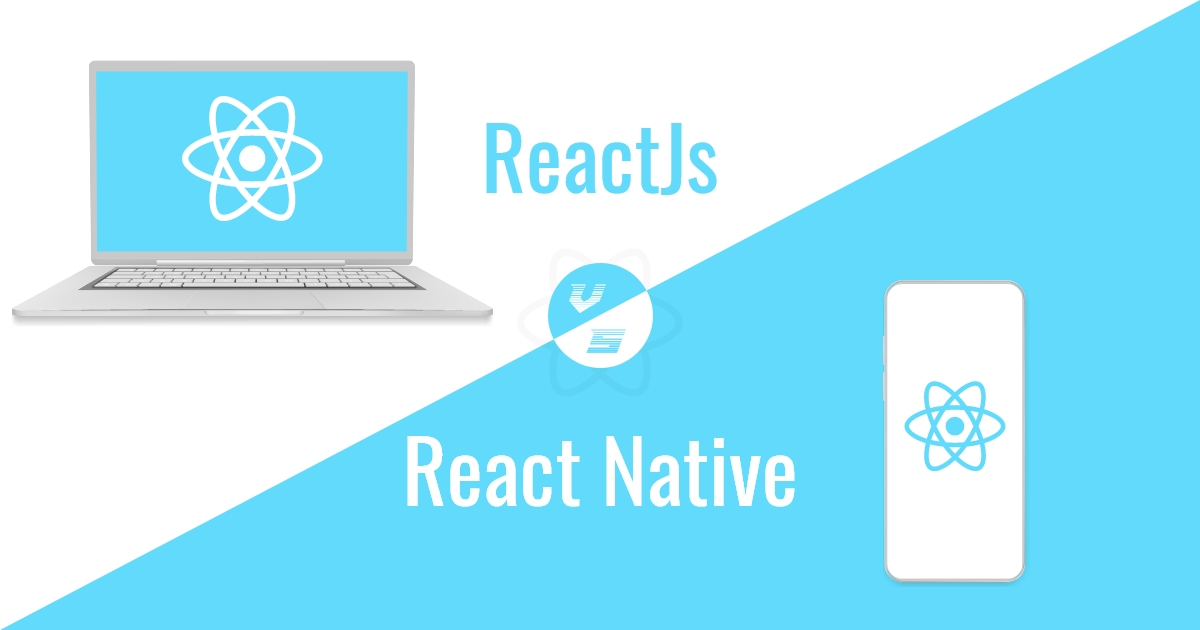
React and React Native are two different technologies with vast similarities & a common name owing to the same creator & similar properties. However, confusing one for the other has become a significant issue with software development projects.
When analysing React vs. React Native, you can start with the basics. While React is simply a JavaScript library, React Native is an entirely open-source framework. So you get vast differences in the compatibility and application of these two homonyms.
Overall, React is a fine choice when creating web applications. In contrast, React Native is the framework to trust for mobile applications. This blog post helps you understand React vs. React Native comparison by illustrating the following points:
- What is React?
- Pros and cons of using React
- When should you use React for software development?
- What is React Native?
- Pros and cons of React Native
- When should you use React Native for software development?
Without further ado, let’s begin.
What is React?
Maintained by Meta Community, React is an open-source JavaScript library developed for front-end development. The library facilitates the creation of advanced UI interface designs using a component-based architecture. Released in 2013, the framework gained immense popularity in less than a decade, and many large-scale enterprises, including Facebook, Skype, Instagram, etc., are using it. React is also called React.js and refers to the same.
A React front-end developer can customize fast and intuitive user interfaces that run effectively for websites or web applications. Choosing React for your web application comes with a host of benefits. However, it also has some cons like any other front-end tool. Let us explore them in detail.
Pros of Using React
-
Reusable Components Reduces Development Time
ReactJS comes with reusable components, which allows developers to use earlier developed concepts for newer applications. In simple words, React.js developers don’t need to establish each functionality from scratch. They can simply leverage already set ideas to create applications in no time.
-
Blazing Speed Performance with Virtual DOM
Reactjs library comes with Virtual DOM, multiple times faster than the accurate DOM model. The virtual DOM model allows developers to make changes in the code snippets and lets minimum modification in the original code. Thus it requires less time to work with ongoing changes in the web development process.
-
Simplified Process with One-Way Data Binding
ReactJS comes with one-way data binding, allowing the programmer’s team to easily track all the changes made to any particular data segment. It leads to a greater level of simplicity in the web development project.
-
SEO-Friendly
React-based UI designs are SEO-friendly and rank well over the search engine. So, it is a preferred choice for websites and applications dealing in eCommerce or anything for general people.
-
Intuitive & Declarative Approach
Programmers can handle the selected parts of the UI interface via significant data modification and fewer clicks. Along with its intuitive approach, it ultimately supports more fantastic UI modifications, thus acting as simple to use the library.
Cons of Using React.js
- React.js suffers from poor documentation, which leads to the onboarding of new team members, a significant issue for the users.
- It requires expertise in JSX and the library to make the most of it.
When should you use React for software development?
React is ideal for web-application development projects that require multiple updates. React.js consultants are a practical option when looking for a software team that provides you with a faster time-to-market. React inbuilt capabilities supports quicker development and lower project costs.
What is ReactNative?
Released post two of the release of React, React Native is a framework developed for developers to create mobile applications compatible with Android, Android TV, iOS, macOS, tvOS, Web, Windows, and UWP platforms. Unlike the React library, the React Native framework gives users greater control of platform native features.
So, you can have cross-platform mobile applications that leverage platform-centric features effectively. Let us have a detailed look at the pros and cons of ReactNative to help you analyse when you should choose it for your project.
Pros of Using React Native
-
Single Code-base for Multiple Mobile Platforms
Having a single codebase for multiple mobile OS is among the significant benefits of using React Native for your mobile application. It also facilitates smooth updates over various platforms as the code base remains the same.
-
Massive Community Support
React Native has enormous community support, and according to Statista, it was the second most popular cross-platform framework in 2021. It was second only to flutter and held the popularity of 38% among software developers worldwide.
-
Great User-Experience
Creating high-performance applications with React Native helps you ensure a healthy user experience for the project. React Native is considered an ideal framework for developing simple to mid-level complexity mobile apps. However, when creating a heavy application with many features, React Native may not prove a compatible framework.
-
Hot-Reloading Facilitates Multitasking Applications.
React Native comes with hot-reloading, which allows developers to view the implemented modifications in real time. So the programmer’s team can update and modify the process simultaneously in a limited time.
-
Similar Outlook in iOS & Android
React Native helps you create a uniform brand appeal by getting a similar UI on Android and iOS. It facilitates companies to generate brand credibility and greater trust with the developed application.
Cons of Using React Native
- React Native suffers from a tedious debugging approach as developers must be proficient in multiple languages, including C, C++, JavaScript, etc.
- It is not an ideal framework when creating applications with multiple-screen transitions.
When should you use React Native for software development?
React Native is a good choice when creating mobile applications with fewer screen transitions. You have a single codebase for Android and iOS. So, you get access to smooth updates and consistent Layout over both the major platforms.
Final Takeaways
I hope by now you must have a concise idea of React vs. React Native. It’s ideal to hire a React.js developer when creating a web application or website. In contrast, go for React Native when developing a mobile application with fewer screens.
